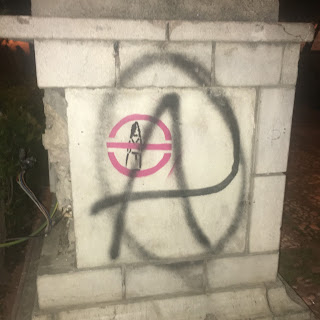 "Uno no puede dejar de asombrarse cuando contempla los misterios de la
eternidad, de la vida, de la maravillosa estructura de la realidad.
Basta con que uno intente comprender solo un poco de este misterio cada
día".
"Uno no puede dejar de asombrarse cuando contempla los misterios de la
eternidad, de la vida, de la maravillosa estructura de la realidad.
Basta con que uno intente comprender solo un poco de este misterio cada
día".
(Einstein)
Aunque al día de hoy nos pueda parecer que la ciencia y la filosofía son saberes muy distintos, esto no siempre fue así. Recordemos que filosofía significa etimológicamente amor por la sabiduría; o sea tener ganas de saber, querer conocer, hacernos preguntas y buscar respuestas o revisar las que heredamos de nuestra cultura por si hay otras mejores. En definitiva, tener curiosidad y un pensamiento crítico; y esto se aplica tanto a las ganas de entender por qué tenemos las leyes que tenemos, las normas morales, cuál es la acción correcta, cómo conocemos, qué es la realidad, ¿tenemos acceso a ella?. Dicho con otras palabras, a la filosofía le interesa todo cuanto hay, incluso lo que no podemos conocer pero esperamos comprender algún día. Por eso los primeros filósofos eran también astrónomos, como Tales de Mileto, o matemáticos, como Pitágoras, o físicos, como Demócrito.
Según Aristóteles, la diferencia entre ciencia y filosofía, se debía solo al campo de estudio que cada una pretendía abarcar. La ciencia sería sectorial porque se ocupa de parcelas concretas de la realidad, mientras que la filosofía se ocupa de todo cuanto hay y es por ello el saber más general. Me explico: la medicina no se ocupa de los caracoles ni de las estrellas, sino del cuerpo humano en cuanto susceptible de salud o enfermedad, un biólogo se ocupa de los seres vivos y un astrónomo de los astros. la filosofía, por el contrario, no se limita a un tipo de realidad, sino que se interesa por todo cuanto hay, se pregunta por el mismo hecho de existir y sus distintos modos, por ejemplo. Esto no significa que un filósofo deba saber de todo, sino, más bien, que, en principio, ningún ámbito de la existencia le es ajeno.
Sin embargo, esta unión comenzó a quebrarse a raízde la Revolución Científica, entre los s. XVI y XVII cuando la ciencia comienza a desarrollar s u propio método basado en las matemáticas, la observación y la experimentación. Con las matemáticas adquirimos un lenguaje preciso y objetivo. El universo deja de ser descrito con adjetivos tales como grande o inmenso que son siempre relativos. ¿Grande para quién? Yo soy alta para un niño de dos años y muy baja para Pau Gasol; pero de lo que no cabe la menor duda es de que mido 1'60 cm. Del mismo modo la observación y la experimentación pretenden sustituir las creencias y suposiciones por hechos contrastables.
Este método produce de inmediato enormes éxitos. Por ejemplo, Galileo, quien es considerado el inventor del telescopio, cambia la visión geocéntrica del universo por otra heliocéntrica o Harvey, en el s. XVII, describe la circulación de la sangre a partir del bombeo del corazón. Todos estos grandes logros no solo aumentan el caudal de nuestros conocimientos, sino que permiten adivinar la enormidad de nuestra ignorancia, todo lo que aún nos queda por saber. Por tanto, las ciencias comienzan a dividirse y especializarse cada vez más, conscientes de todo lo que hay que investigar sobre cada porción de la realidad; y, como consecuencia, se separan de la filosofía que no puede aplicar su método. ¿Por qué?
Bueno, Ortega y Gasset respondería que porque la filosofía es un saber radical. Con esto quería decir que sus preguntas no se detienen donde no puede aplicarse el método científico, sino que avanzan hasta las últimas cuestiones que suelen ser también las más fundamentales. Por ello dice que es un saber inexacto pero último; mientras que la ciencia, exacta gracias a su método de trabajo, se detiene allí donde el método no puede ser aplicado y es por esa razón penúltima.
¿Es alguna más importante? Depende. Si tenemos cataratas, seguramente busquemos la precisión de un oftalmólogo; pero para vivir también necesitamos dar respuesta a otras preguntas. ¿Qué es una buena vida? ¿en qué consiste la felicidad? o ¿qué condiciones deben darse para que el diálogo pueda producirse? son solo algunos ejemplos.
EJERCICIO
Pues ahora que ya hemos visto de qué va la filosofía, trata de representarla con los medios que quieras.
Algunas de mis creaciones favoritas han sido:
.png) |
| Por Danney Vara Ramírez de 1º de bachillerato de Sociales 23/24 |
 | |||||||||||||||||||||||||||||||||||||||||||||||||||||||||||
| Por Lucía Podadera González de 1º de Bachillerato de ciencias 23/24 | |
O este poema de Carmen Santano García de 1º de bachillerato de sociales:








